- Intro
- Community Partnerships for Supporting Youth Cohort
- Kin Caregiver Support Cohort
- WIC Matters Cohort
- Family Support Cohort
- Get Georgia Reading—Campaign for Grade-Level Reading
- Promoting Women’s Health & Healthy Births Cohort
- Civic Health
- Early Childhood Health and Education Cohort
- Supporting Our Partners
- Back to Top
Our Work
A legacy of addressing complex issues and achieving lasting impact drives Georgia Family Connection’s commitment to communities across the state. We bring together partners in all 159 counties in Georgia working toward measurably better outcomes for all our children, families, and communities.
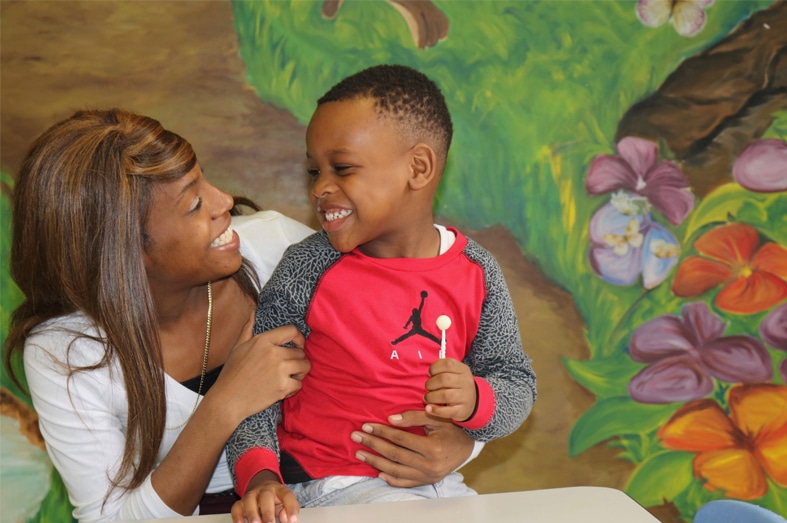
This work intersects our strategy to:
- support the statewide Collaborative network;
- promote informed decision-making through data, evaluation, and research; and
- develop, maintain, and expand partnerships.
At Georgia Family Connection, we’re working to ensure that all children are healthy, primed for school, and succeed when they get there; families are stable, self-sufficient, and productive; and communities are vibrant, robust, and thriving.
Getting to long-lasting community results requires collaboration across these five key result areas. None of them stand in isolation. They overlap. By working together, we can nurture children and families who thrive in vibrant communities—everywhere.
Healthy Children
Children Primed for School
Children Succeeding in School
Stable, Self-Sufficient Productive Families
Thriving Communities
GaFCP supports cohorts comprised of Collaboratives dedicated to developing and implementing strategies that address key indicators of child and family well-being. With help from state, community, and investment partners, GaFCP supports these cohorts with resources, assistance, and a structure so they can team up with peers in other counties struggling to improve the same indicator and achieve lasting change across the state.
The Collaboratives in our cohorts work to:
- identify resources and key partners;
- implement best and promising practices;
- develop programs, services, and activities to change the tide of issues impacting their counties; and
- share research, successes, and struggles in their own counties to create programs to improve critical indicators.
Each cohort is supported by an advisory committee featuring partners who can inform and address system challenges. Through specialized technical assistance and peer-to-peer learning opportunities, cohorts build expertise within Collaboratives that’s shared across their region.
Explore Our Work
Community Partnerships for Supporting Youth Cohort
Learn More
Kin Caregiver Support Cohort
Learn More
WIC Matters Cohort
Learn More
Family Support Cohort
Learn More
Get Georgia Reading—Campaign for Grade-Level Reading
Learn More
Civic Health
Learn More
Early Childhood Health and Education Cohort
Learn More
Promoting Women’s Health and Healthy Births Cohort
Learn More
Supporting Our Partners
Learn More
Community Partnerships for Supporting Youth Cohort
Funding Cycle: 2020 – Present
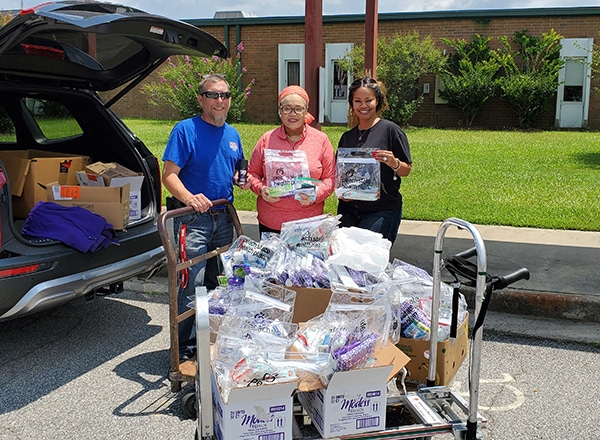
Georgia’s high school graduation rate hit an all-time high of 82% for the 2018-19 academic year. While this is cause for celebration, it means that at our best, 18% of students are not graduating from high school.
In an effort to assist community partners and school systems in meeting the challenges ahead, GaFCP’s Community Partnership for Supporting Youth Cohort, formed in 2021, will focus on making real progress on reducing the number of students disconnected from school and employment opportunities. The cohort includes Ben Hill, Crawford, DeKalb, Hall, Jenkins, Macon, Mitchell, Quitman, Treutlen, and Worth counties.
Implementing best practices for youth development and carving out alternative pathways to high school completion is how the cohort aims to sustain—and eventually accelerate—high school graduation rates across the state.
Partners
Kin Caregiver Support Cohort
Funding Cycle: 2019 – Present
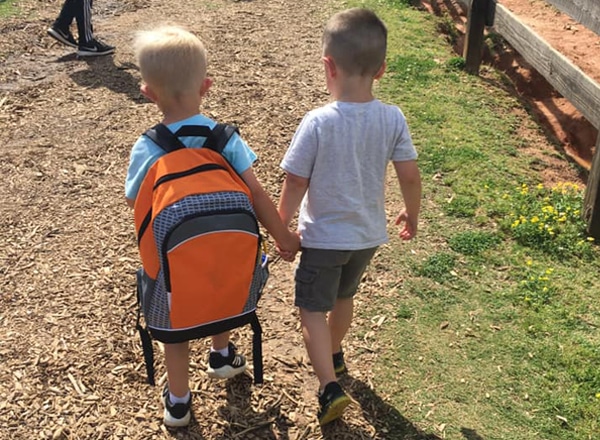
In 2018, the Georgia Division of Family and Children Services (DFCS) was awarded funding from the U.S. Department of Health and Human Services to enhance DFCS’s Kinship Navigator Program, which was launched in 2015 in response to the increasing number of grandparents, relatives, and other caregivers assuming responsibility for raising another relative’s children. The number of youths placed with relatives is up almost one-third in recent years. In 2020, 34% of children in care in Georgia were in a kinship arrangement.
Kinship support is a key component of the federal Family First Prevention Act designed to provide services to families who are at risk of entering the child welfare system and prevent children from entering foster care. DFCS has prioritized the use of relatives and “fictive kin”—adults not related to, but close with a child—to care for children who cannot stay at home.
GaFCP works with the Kinship Navigator Program to provide evaluation expertise and formed a cohort focused on providing financial and other critical supports to kin caregiver families and assisting with gaps in services in their communities. The cohort counties for FY20 were Berrien, Brantley, Douglas, Effingham, Gilmer, Harris, Jefferson, Toombs, and Tri-County (Montgomery, Treutlen, and Wheeler).
Partner
WIC Matters Cohort
Funding Cycle: 2018 – Present
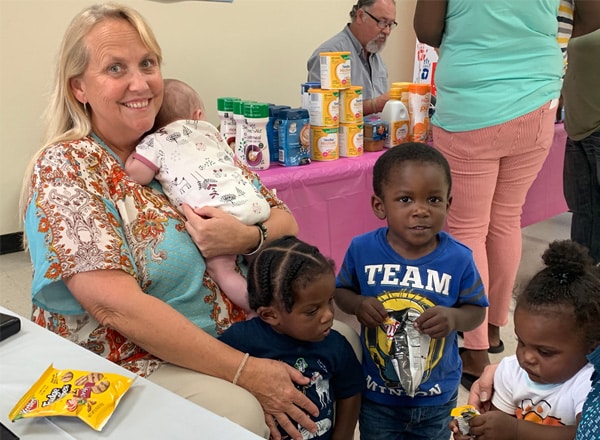
The USDA’s Special Nutrition Program for Women, Infants, and Children (WIC) is a critical service for families with young children. WIC provides nutritional foods and nutrition education and health care referrals to low-income pregnant, breastfeeding, and postpartum women and children birth to 5. Use of WIC services has been declining in Georgia and across the country over the past several years. In support of our Department of Public Health WIC partners, a group of nine Georgia Family Connection Collaboratives are working together with WIC to help ensure that all eligible women are informed about, enroll in, and actively use the program’s valuable resources.
Butts, Early, Emanuel, Fulton, Lamar, Liberty, Lowndes, Meriwether, and Rockdale counties are focused on crafting creative approaches at the local level to increase knowledge and use of WIC fruit and vegetable vouchers, access to healthy fruit and vegetable choices, and nutrition education to help inform food choices. GaFCP works closely with WIC to ensure that all local projects adhere to state and federal WIC guidelines.
Partners
Resources
Family Support Cohort
Funding Cycle: 2017 – Present
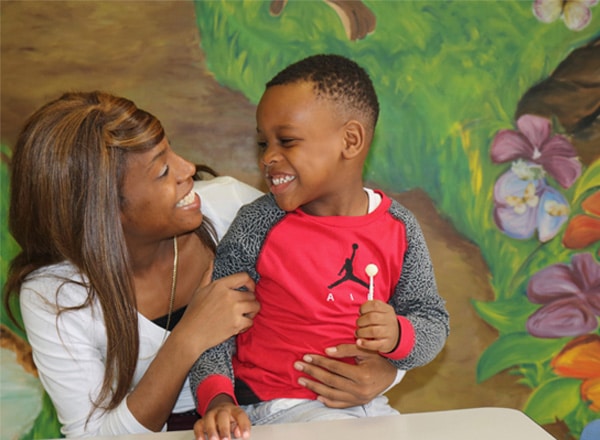
In partnership with the Georgia Division of Family and Children Services (DFCS) Office of Prevention and Community Support Section, GaFCP leads a Family Support Cohort focused on developing, implementing, and evaluating child abuse and neglect prevention county-specific strategies. Three in five Georgians have reported at least one adverse childhood experience (ACE) such as substance abuse, emotional abuse, and domestic violence.
Comprehensive prevention requires efforts to support parents and families before they become known to the DFCS system. This approach includes providing a continuum of contact and support to all families based on level of need while promoting and strengthening parental engagement and working with partners in understanding their role as a part of the Family Support Cohort system.
The work in Dade, Dougherty, Floyd, Lanier, Lumpkin, and Webster counties is designed to have collective impact, including a county-specific strategy as well as a cohort-wide shared vision and measurement systems. The approach includes five key strategies detailed by the CDC Division of Violence Prevention that include explicit attention to Strengthening Families Georgia protective factors:
- strengthening economic supports to families,
- changing social norms to support parents and positive parenting,
- providing quality care and education early in life,
- enhancing parenting skills to promote healthy child development, and
- intervening to lessen harms and prevent future risk.
Partner
Resources
Get Georgia Reading—Campaign for Grade-Level Reading
Launch Year: 2013
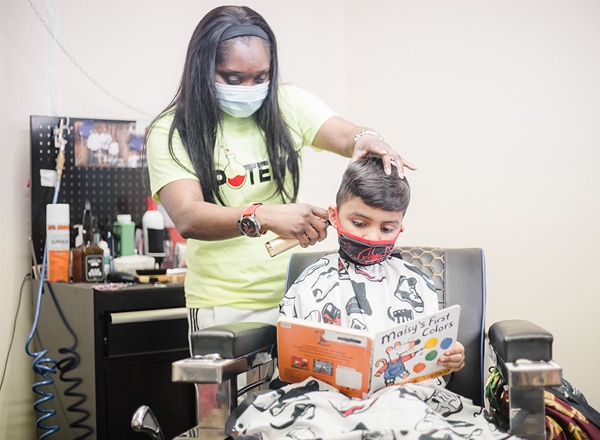
In 2013, two-thirds of Georgia’s children were not reading proficiently by the end of third grade. That has significant and long-term consequences for all Georgians, because low achievement in reading affects our economy, our safety, and our health. The cost to our state is significant, and the cost to our children is incalculable.
Unwilling to yield any longer, the governor and first lady came together with Georgia’s leaders in 2013 to take on third-grade reading proficiency—not only as an education issue, but as an urgent priority for all who care about children’s health and well-being.
Get Georgia Reading is a collaboration of more than 100 private and public partners rallying people, organizations, and communities to apply a common agenda as a framework for action. GaFCP became the Campaign’s host agency in 2015, assuming management and support responsibilities.
Partners
Resources
Promoting Women’s Health and Healthy Births Cohort
Funding Cycle: 2010 – Present
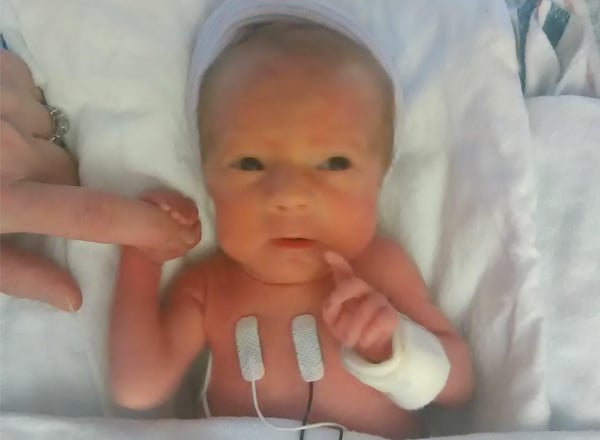
The rate of low-birthweight (LBW) infants born in Georgia climbed to 9.6% in 2006—the highest level in 30 years—and peaked at 10.6% in 2021. Infants born to non-Hispanic Black women have the highest rate of LBW, 13.1%, which is two or more times greater than for infants born to women of other race and ethnic groups.
The initiative was launched in 2010 to develop strategies to lower the LBW rate in four counties—Lamar, Heard, Spalding, and Butts—in partnership with the Department of Public Health, WIC, and other key local partners. Kaiser Permanente continued to invest in participating counties, which include Lamar, Meriwether, Spalding, and Butts.
The aim of the counties from this cohort is to work with local partners to build strategies that include best and promising practices to improve women’s health and birth outcomes in the region. These strategies focus on supports that must occur during critical time periods—pre-conception, interconception, prenatal, and perinatal.
Partners
|
Resources
Civic Health
Launch Year: 2015
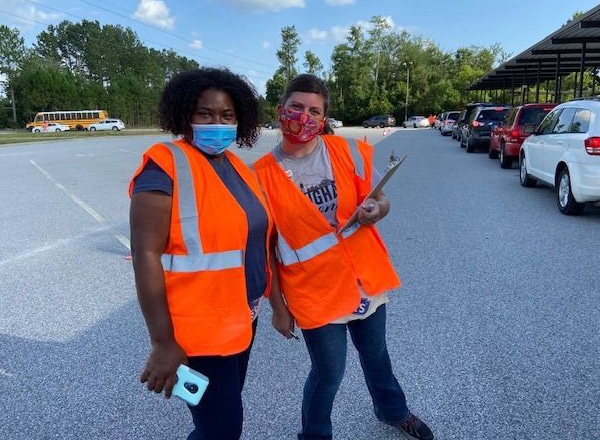
Georgia’s civic health is not strong in comparison with the rest of the nation. This matters, because high levels of civic health correspond to lower crime rates, better public health outcomes, and greater economic resilience, particularly during economic downturns. Engaging multiple sectors across all demographics can create a better Georgia for everyone.
GaFCP launched a Civic Health initiative in 2013, by partnering with the National Conference on Citizenship (NCoC), the Carl Vinson Institute of Government, and Georgia Forward to author Georgia’s first-ever Georgia Civic Health Index. In 2019, GaFCP partnered with the Georgia Municipal Association (GMA) to publish a second edition.
Though the findings are compelling, data for that publication is only available at the state level. To better understand civic health trends in communities, GaFCP partnered with Metis Associates to create a local-level survey comparable to the one used at the state and national levels, and engaged six counties—Bibb, Camden, Cook, Fayette, Stephens, and Washington—in collecting data.
GaFCP also partnered with GMA, local Family Connection Collaboratives, and city officials in 2021 and 2022 to implement a youth engagement survey to better understand the needs and engagement activities of some of Georgia’s young residents.
With each new data set collected, the goal is to be representative of the community surveyed to gain an accurate understanding of different aspects of civic health, share the data with partners to increase their knowledge and understanding, and develop community strategies to improve civic health, beginning at the local level. At the state level, GaFCP partners with GMA, the Georgia Center for Civic Engagement, and Georgia’s Judicial Council / Administrative Offices of the Courts to promote engagement and civic education as a strategy for improving civic health across Georgia.
Partners
|
Resources
Early Childhood Health and Education Cohort
Funding Cycle: 2013 – 2018
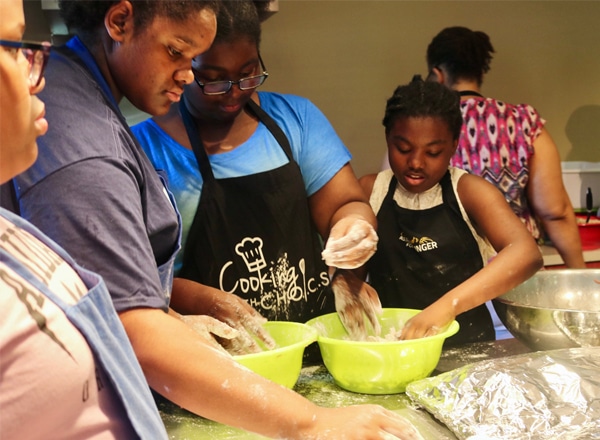
In 2013, GaFCP created cohorts of three counties each to address childhood obesity and grade-level reading. When it became clear that many supports across the two cohorts were similar and all had a child health and education focus, the two cohorts merged to form the Early Childhood Health and Education Cohort (EC-HEED) Cohort.
Early childhood experiences lay the foundation for future success in school, work, family, and community. The Collaboratives involved in this work used the funding to develop and implement strategies to address the needs of their communities to help children birth to age 8 be healthy, ready to start school, and read on grade level by third grade.
Georgia has the 17th highest rate of childhood obesity in the United States, and it can be difficult to provide healthy food choices for lower-income families where fast food is the only option. GaFCP aims to increase the opportunities for families and young children to have access to nutrition education and healthy food choices. Communities are increasing opportunities to address obesity and hunger.
In 2013, Baldwin, Charlton, Newton, Polk, Seminole, and Washington counties established a strategy team of key partners who worked together to develop, implement, and evaluate EC-HEED strategies. Crisp, Elbert, Emanuel, Fulton, Hancock, and Terrell counties joined in 2015.
Partners
Resources
Supporting Our Partners
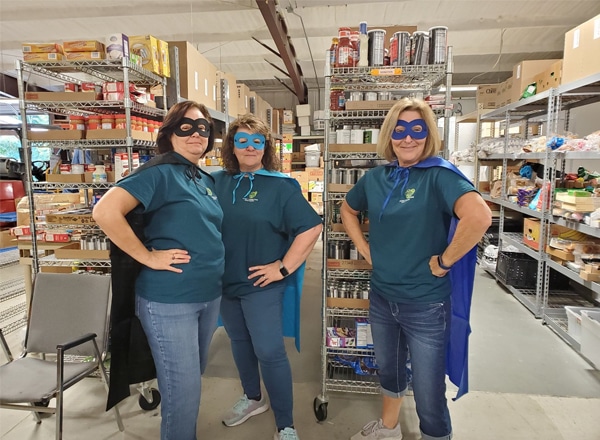
Bright from the Start: Georgia Department of Early Care and Learning (DECAL):DECAL is responsible for meeting the child care and early education needs of Georgia’s children and their families. GaFCP partners with DECAL to improve access to pre-K in Georgia and promote the program through the Georgia Family Connection network, their partners, and other statewide entities. GaFCP also supports efforts to promote equity in early literacy programs and inform and convene the network and partners on strategies that support kindergarten readiness. DECAL is a member of the Get Georgia Reading Campaign Cabinet. |
Georgia Family Support Network:Across the country, Family Support and Strengthening organizations work with families in a multigenerational, family centered approach to enhance parenting skills; foster the healthy development and well-being of children, youth, and families; prevent child abuse; increase school readiness; connect families to resources; develop parent and community leadership; engage males and fathers; support healthy marital and couples relationships; and promote family economic success. Georgia became part of the national network in 2018 and is working to grow a family support network within the state. GaFCP works with Georgia Family Support Network (GSFN) as part of the steering committee and co-chairs the Data Workgroup to assist in connecting and convening network members to enhance effectiveness; promote family support best practices and evaluation including training on national Standards of Quality for Family Strengthening and Support; and raise the visibility of the value and impact of family support networks. Partners include Prevent Child Abuse Georgia at Georgia State University, Georgia Department of Public Health Injury Prevention Program, and Georgia Division of Families and Children Services Prevention and Community Support Section. |
Georgia Division of Family and Children Services:The Georgia Division of Family and Children Services (DFCS) began implementing a new evidence-informed Georgia Practice Model for child welfare casework in 2016. The new model prioritizes working in partnership with families, focuses on pragmatic solutions to difficult situations, and notices and celebrates change. The architecture of the new practice model, Solution Based Casework, was developed through years of consultation with those who were attempting to remedy problems contributing to recurrence of abuse and neglect. However, the model is applicable to a wide range of family problems. GaFCP has partnered with DFCS and Georgia State University since 2015 to engage communities throughout the state to gather input on the new reforms to our child welfare system. GaFCP also serves on the advisory board that helped develop the new practice model and as a member of the Child Welfare Training Collaborative Advisory Board, which assists with implementing a new training institute. |
Literacy for Learning, Living, and Leading in Georgia (L4GA):This unique approach to improving literacy pairs community-driven action with research-proven instruction. First implemented in 2016, Georgia was awarded more than $179 million in 2019 to continue this effort, with more than 95% earmarked to competitively award to local school districts and their community partners. The L4GA grant embeds the four pillars of the Get Georgia Reading—Campaign for Grade-Level Reading as a framework for action and requires grantee to structure plans that strengthen the pillars in their communities. GaFCP has partnered with the Georgia Department of Education (GaDOE) in all phases of this work, from development to implementation, and provides technical assistance to grantees in developing and nurturing community partnerships. GaDOE is a member of the Get Georgia Reading Campaign Cabinet. |
Georgia Essentials for Childhood and the Statewide Child Abuse and Neglect Prevention Plan:Georgia Essentials for Childhood is part of a comprehensive effort for child abuse and neglect prevention across several states using the Essentials for Childhood framework developed by the CDC. The aim is to build resilient communities, address and prevent adverse childhood experiences, improve community environments, and reduce and destigmatize trauma. GaFCP serves on the steering committee, co-chairs the Data Workgroup, and supported the statewide rollout of the Statewide Child Abuse and Neglect Prevention Plan (CANPP) released in 2020. As a blueprint for action, this plan is imperative to ensure that all Georgia’s children and families have equitable opportunities and necessary support to thrive in safe, stable, connected, and nurturing communities where they live, learn, work, and play. All Georgia Family Connection Collaboratives are encouraged to attend the regional CANPP planning sessions, and Collaboratives in Brantley, Screven, and Wilcox counties are taking the lead as the convening partner in their region. Partners include Prevent Child Abuse Georgia at Georgia State University, Georgia Department of Public Health Injury Prevention Program, and Georgia Division of Families and Children Services Prevention and Community Support Section. |
Sandra Dunagan Deal Center for Early Language and Literacy:The Deal Center, established in 2017, improves the early language and literacy skills of Georgia’s children from birth through age 8. A three-pillared approach includes supporting research, providing professional learning, and promoting community engagement through research and grants to advance early literacy. GaFCP’s staff influences all aspects of the Center’s strategy and sit on the organization’s Governing Board—jointly designing, launching, and supporting grantmaking efforts and events. The Deal Center is a member of the Get Georgia Reading Campaign Cabinet. |
